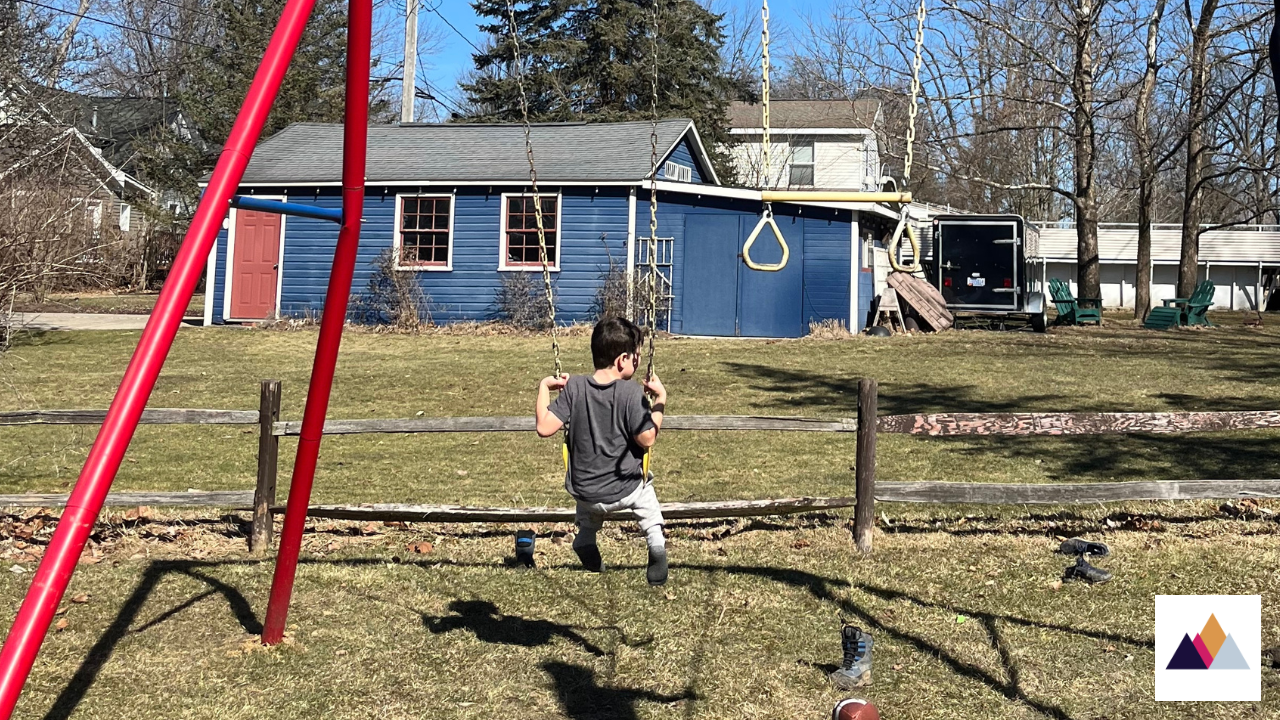The smallest, hardest shift
Jul 18, 2025
Yesterday evening, Cooper (10) and I were swinging on the swings in the backyard.
It was a beautiful summer evening, and we could hear the music festival from our small town's main street a few blocks away.
Then Cooper began telling me about his Dungeons and Dragons day camp.
He expressed how upset he was that he got "punished" because he and his friend got into a little spat and ripped an Uno card. His teacher told him that they weren't allowed to play Uno anymore.
As he told me this, I could feel my traditional parent brain firing up (it still happens!)
My instinct was to:
![]() Explain why the teacher's response was logical.
Explain why the teacher's response was logical.
![]() Use it as a teaching moment to explain why they have to be careful with others' materials.
Use it as a teaching moment to explain why they have to be careful with others' materials.
![]() Dive into problem-solving about how he might talk to his teacher about it the next day.
Dive into problem-solving about how he might talk to his teacher about it the next day.
As the first words tumbled from my mouth, I realized what I was doing: I was trying to teach in a moment of connection.
And even though Cooper is well out of burnout and was happy on the swings with me, I also know he is still PDA.
Teaching in the moment would put him right into his survival brain and shut down our connection.
(If you are new to this, here is the logic: me being "above" him as the teacher results in a perceived loss of autonomy and equality and sets of his nervous system).
So I paused, said "mhmmm..." kept swinging and just let the conversation continue without solutions or explanations.
As I was putting him to bed that night, I asked if it helped to talk about the Uno situation. He nodded and said "yes," and I could see that he felt better, even though I didn't really "talk" to him about it at all. ![]()
If your child or teen is in burnout, like Cooper was 5 years ago, these types of connections and conversations may seem out of reach.
But one of the smallest - yet hardest - steps you take throughout the day with your PDAer is to refrain from teaching, explaining, or problem solving.
Examples:
![]() Your child says they don't want to go to school in the Fall --> listen, validate, or simply say "mhmmm..." or "that makes sense." (this doesn't mean you are agreeing to not going to school).
Your child says they don't want to go to school in the Fall --> listen, validate, or simply say "mhmmm..." or "that makes sense." (this doesn't mean you are agreeing to not going to school).
![]() Your child says something is unfair (even though it seems fair to you) --> "it makes sense you would feel that way."
Your child says something is unfair (even though it seems fair to you) --> "it makes sense you would feel that way."
Ninja level
![]() Your child says something that isn't true ("the sky is yellow") --> "I could see how the sky would look yellow to you."
Your child says something that isn't true ("the sky is yellow") --> "I could see how the sky would look yellow to you."
Each time you do this - instead of teaching - you are keeping your PDA child or teen in their thinking brain and allowing connection.
And connection and felt safety are the foundation on which all transformative change happens over time.
Will you experiment with this over the weekend?
See if you can count 5 times this weekend when you were about to teach, but instead you paused, listened and didn’t say anything.
It is that simple and yet hard to implement!
Want my blog posts in your inbox?
Most weeks we send two emails. You can unsubscribe any time.

